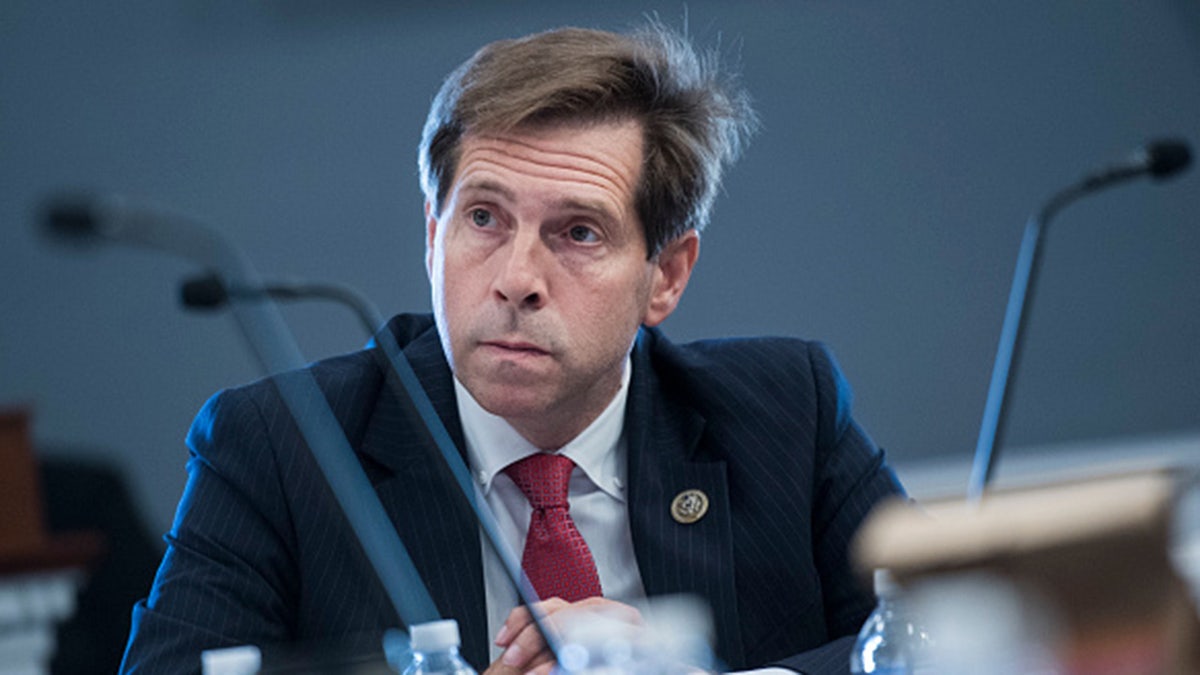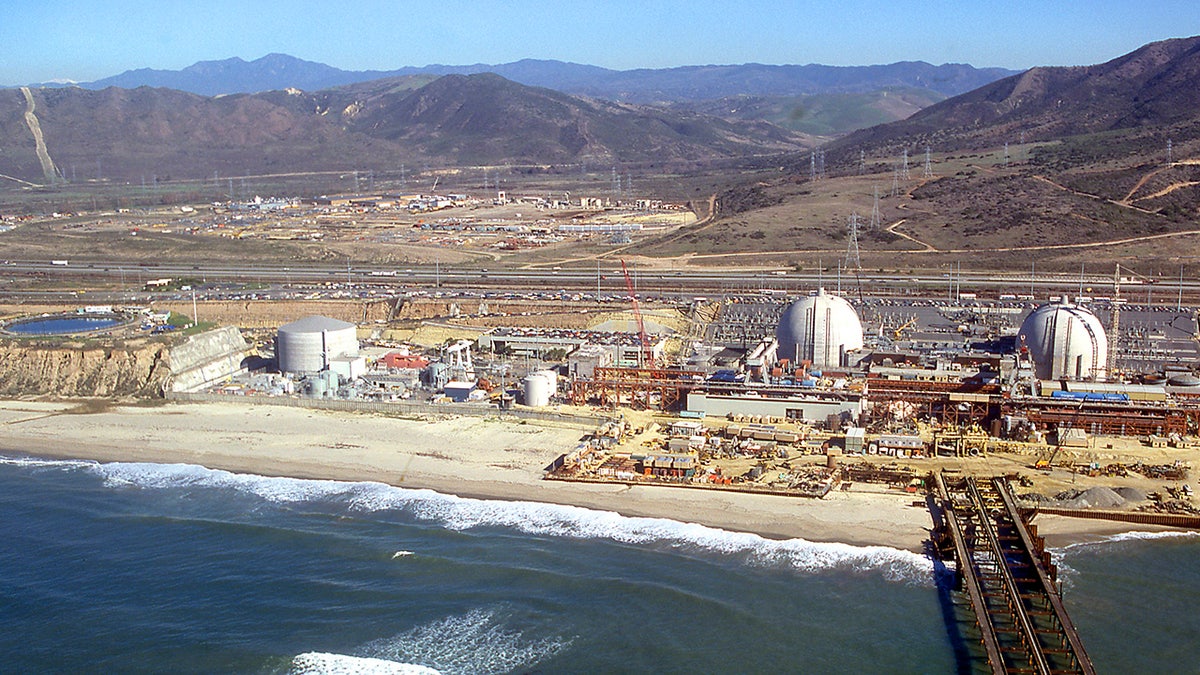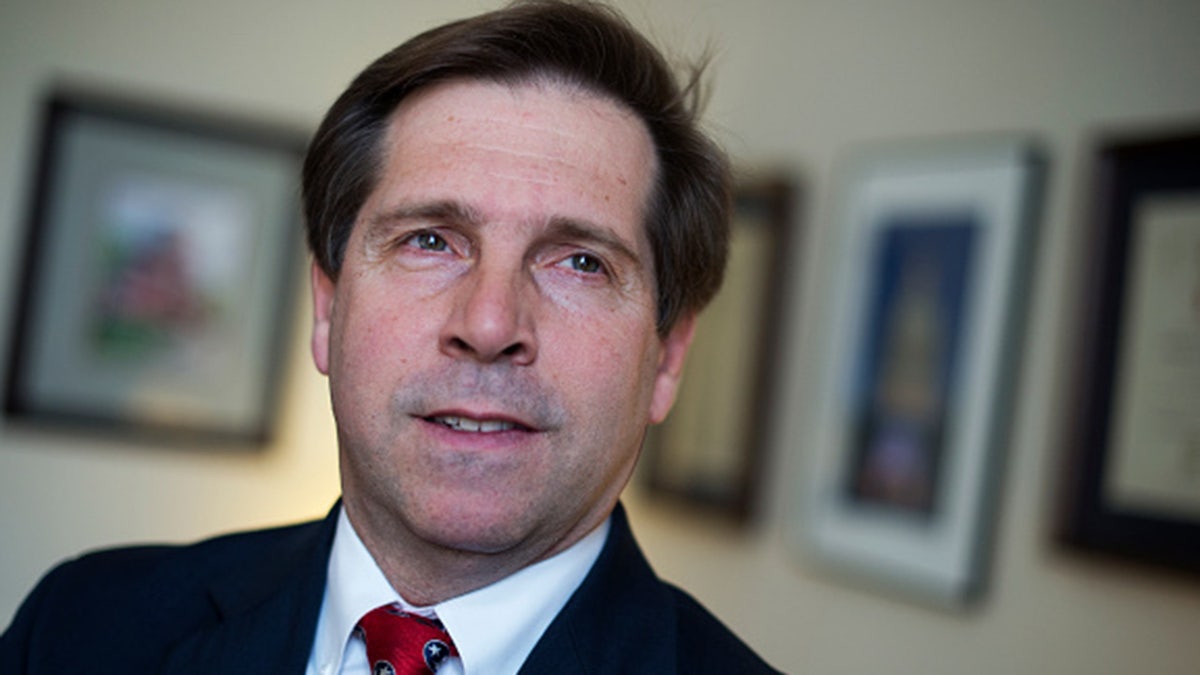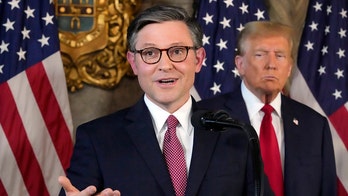Fox News Flash top headlines for December 10
Fox News Flash top headlines are here. Check out what's clicking on Foxnews.com.
The Big Idea is a series that asks top lawmakers and figures to discuss their moonshot — what’s the one proposal, if politics and polls and even price tag were not an issue, they’d implement to change the country for the better?
The U.S. must invest in its "nuclear renaissance" to stay ahead of global competitors like China and ensure clean energy for years to come, Rep. Chuck Fleischmann, R-Tenn., told Fox News.
"America is experiencing a nuclear renaissance," Fleischmann said. "If we succeed in this endeavor, we will see a strong and robust nuclear energy industry. If we fail in this endeavor, this space will clearly become occupied by other countries, many of which would not necessarily have U.S. interests at heart, specifically China."
RON WYDEN'S BIG IDEA: DEFEND SECTION 230 AND PREVENT A 'GOVERNMENT SPEECH POLICE'
Since 2011, Fleischmann has represented Tennessee's 3rd District, home to Oak Ridge National Laboratory. Oak Ridge National Lab was established in 1943 as part of the Manhattan Project and is now a nexus of nuclear energy research for the Department of Energy. Fleischmann is also a member of the House Appropriations Committee.
"I fund the initiatives. Someone like [Alaska Sen. Lisa] Murkowski is a strong supporter of nuclear energy ... working on authorization language," Fleischmann said. "They will build the house, and we will finance it."
Even though progressive climate goals like the Green New Deal seem to take up a lot of oxygen (pun intended) in energy discussions, nuclear energy has support from lawmakers in both parties.
"Nuclear is clean, it is safe, it is viable," Fleischmann said. "Like all forms of power, it has upsides and downsides."

Rep. Chuck Fleischmann, R-Tenn., is seen during a House Appropriations Homeland Security Subcommittee markup of the FY2019 Homeland Security Appropriations bill in Rayburn Building on July 19, 2018. (Photo By Tom Williams/CQ Roll Call)
The upsides? Nuclear plants emit no greenhouse gases during operation, they last for decades and their technology is rapidly improving. The downsides? Building nuclear plants is expensive, maintaining safe operations and disposal of nuclear waste is hugely important and, of course, people often associate the plants with devastating accidents like Chernobyl and Fukushima.
Nuclear energy produces roughly 55% of carbon-free electricity in the U.S., according to the Nuclear Energy Institute. The U.S. has 58 nuclear power plants in 29 states, and the average age of U.S. nuclear reactors is 38 years old, according to 2019 data from the U.S. Energy Information Administration.
Fleischmann, who uses everything from online memes to in-depth op-eds to spread the word about nuclear energy, discussed his "Big Idea" in the following Q&A with Fox News. This interview has been condensed and lightly edited for clarity.
Q: What should Americans know about nuclear energy?
Fleischmann: With the reduction in cost of natural gas and fossil fuels, nuclear for some became a little bit more expensive, but in the long term if you look at durability, older nuclear power plants, many of which outlived their time and are still operating, have been a very, very good investment.
They've supplemented the energy grid for a lot of utilities.
My take on nuclear right now is that it is a global industry with several facets to it.
Q: Can the U.S. compete with industry rivals like China?
Fleischmann: As a global industry, there is very strong international competition. You alluded to China and Russia as well as other players who have continued along the path of promoting nuclear power and nuclear energy.
This is not a static industry. What I mean by that is when I refer to those older, larger nuclear power plants built largely in '70s and '80s, many are still operating.

Aerial view of Units 2 and 3 at San Onofre Nuclear Generating Station located on a Pacific Ocean beach south of San Clemente, California, USA. Scanned film, photographed January 1980.
The technology is changing. The future of nuclear is smaller, more efficient, clearly safer and easier to build ... more mobile with a wide variety of uses.
Probably the most important thing our readers can take away from this article is that America is experiencing a nuclear renaissance.
REP-ELECT AUGUST PFLUGER OF TEXAS CALLS BIDEN OIL PLANS 'EXTREMELY ALARMING'
Q: Americans love the idea of green energy — are we too distracted by options like solar and wind?
Fleischmann: If in part of the country, geothermal, tidal, wind are viable as well as fossil fuels, we can employ that.
If a utility, if a state, if a nation is going to look at providing a reliable, safe, clean energy source, nuclear has got to be a viable choice on the menu.

Rep. Chuck Fleischmann, R-Tenn., is interviewed by CQ Roll Call in his Cannon Building office, about losing his parents to cancer, February 25, 2016. (Photo By Tom Williams/CQ Roll Call)
Another very important part about this with China and Russia being so robust and aggressive in building up their nuclear fleet is they are marketing this to the world.
There are geopolitical benefits to the U.S. engaging in a very strong pro-nuclear agenda.
China, Russia, state actors can decide regardless of market constraints to invest and offer perhaps a developing country — these are real examples — go into Africa, go into South America, say we will build a nuclear plant for you … will run a nuclear plant for you, and that makes both of these actors, China and Russia, a lot more of an attractive ally for that particular nation.
CALIFORNIA UTILITY COULD LEAVE 130,000 WITHOUT POWER TO CURB EXTREME FIRE RISK
With the reauthorization of the Export-Import Bank, that at least allows the United States the ability to get into the game. ... If we do not take advantage and capitalize on the American nuclear renaissance which is strong, which is deep, in a decade we may not have a nuclear energy industry in the U.S.
Q: Does the U.S. have the advantage over these rivals?
Fleischmann: In some areas I think we have an advantage ... because we are so careful, so strenuous about safety, we would be a good choice.
We are in an intense battle with China and Russia which has been very aggressive.
If we look at some other practical applications of what is nuclear power, look no further than our great naval fleet, our aircraft carriers, our submarines. ... The University of Tennessee at Knoxville works with our national lab — these are the kinds of programs we’re going to have to continue in universities across the country.
Many schools decided not to continue their nuclear engineering programs. ... You need capital, you need education, you need a market.
We will know the results in five to 10 years, the experts tell me. We will either be in the game or severely out of the game.
Q: What do you anticipate being able to do with the incoming Biden administration?
Fleischmann: The Trump administration, and to a lesser but not that much of a lesser extent the Obama administration, were pretty pro-nuclear.
We’ve had two pretty pro-nuclear administrations. ... We’ve had two administrations in a row with whom I have worked successfully, but it’s going to take bipartisan and bicameral support.
We need to get some new champions in the Senate as well. One of the things I would like to continue, I’ve offered some of our newer members coming into the House and Senate … to speak with them about nuclear power.
It happens to be relevant to what I do because of Oak Ridge, but I literally am working with members on both sides in both chambers from around the country.
CLICK HERE TO GET THE FOX NEWS APP
Q: How are you working on this issue?
Fleischmann: I’m a strong supporter of funding fusion products or fusion endeavors domestically or internationally. ... All of these are in progress, they take dollars, research, education.
The nuclear engineering education that is given to someone is something they can use to help pursue different solutions as we move forward.






